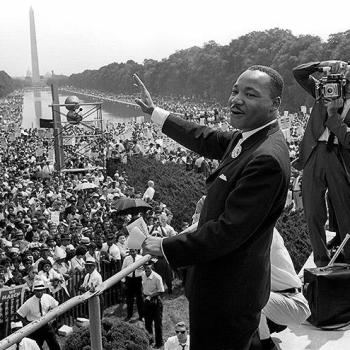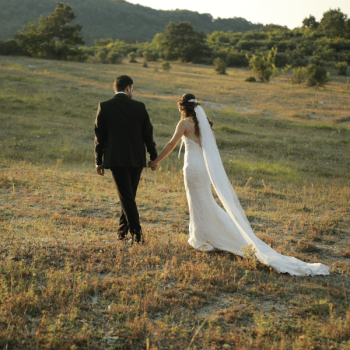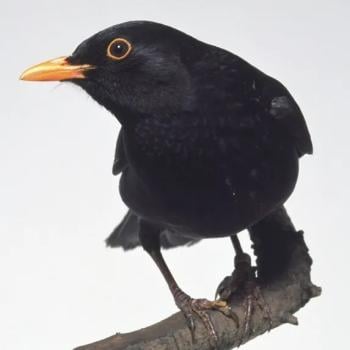"But we have to go back," I said out loud.
Peter paced the room. His eyes darted from chair to corner to bed to door, as if he were looking for a place to settle his gaze, as if he were looking for some stable point in a world that had just started to float away. "I don't want to be ashamed of her," he said. He stopped walking and hung his head.
I thought of him holding her. Hello, beautiful.
"You're going to be a wonderful father."
He shook his head, not quite in disagreement. More with helplessness, or despair. "I'm just so afraid."
I had tried to sound positive, but I was swimming through the same thoughts-What do we do with a child who is mentally retarded? What if people think this is our fault? What if they pity us? What will it take for us to be able to care for her?
I finally said, "I think I could have handled it if she weren't our first child, if I'd had time to learn how to be a mom and how to raise a baby. But this . . ." I clutched the folds of my hospital gown and then smoothed it out over my torso. "This just seems impossible."
Peter's phone interrupted us again. It was his brother Christian, the third time.
"He's like a dog with a bone," Peter said.
"He loves you," I replied. "I think you need to tell him."
"Hello?" Peter answered. "Yeah, I did get your messages. Look, this is hard to say. I didn't want to tell you in the middle of the wedding and everything. But the thing is . . ." He looked at me and took a deep breath. "She has Down syndrome. The doctors think Penny has Down syndrome." Christian said something in response, and the tears ran down Peter's cheeks, and I remembered hearing that tears released toxins from our bodies, that tears brought healing.
Peter said, "I'm sorry to tell you. That's why I wasn't answering your calls. I knew I couldn't fake it once we talked." He was silent. "Thanks. I love you, man."
I had never seen Peter like this before. He had weathered his mother's death a few years earlier. He had wept over the loss of a friend in a car accident. But even then, his hopeful attitude shone. It was a running joke, and a running point of contention, that he was the optimist and I was, by my reckoning, the realist in our marriage. He always looked on the bright side. He always assumed it would work out, whatever it might be. But the lines on his face, the rigidity of his body, the forced smiles and eyes that looked away as quickly as possible-I had never seen this before. I felt as though all morning I had been watching him in a fistfight, a blow to the jaw and then a punch to the stomach until he was on the ground, curled in a ball, quiet and still.
And so I had to ask the question. "Do you still want to name her Penny?"
His face softened. "Of course I do."
It had seemed such a perfect choice, to name her after her grandmother, Peter's mom, who had died just two years earlier. On the day the ultrasound technician shared the news that our child didn't have Down syndrome, she also had written the baby's gender on a scrap of paper, per our request. We had opened the note in the parking lot, sitting side by side in the car, Peter's hand upon my belly. I read out loud, "Buy pink! It's a girl!"
A few minutes later I had asked, "Do you know what you want to name her?"
"I think I'm biased," he replied.
"I think I have the same bias."
She was Penny from that moment on. And throughout the pregnancy we compared her to her grandmother. When she fluttered her legs in the womb, we talked about her namesake's love of dancing, her desire for attention, her spunkiness, her sass. We talked about her beauty, that people regularly compared her to Natalie Wood or Elizabeth Taylor. We had expected our Penny to be similar to her grandmother. But now I wasn't so sure.
There was another knock on the door, and Dr. Mayer walked in. Her cautious smile and curly brown hair, her understated presence-her whole demeanor made me think of my mother. She pressed my belly. Her hands reminded me that my body was recovering from trauma. I closed my eyes against the pain.
"How does it feel?" she asked.
"It's not so bad."
"You didn't have much tearing. You should heal in no time."
In no time. I tried to smile. "Thanks."
Dr. Mayer pulled up a chair. "How are you?"
My eyes searched the room for a minute, then finally landed on my hands. At first, all I could think about was practicing the piano as a little girl, with my long fingers stretching for the proper configurations, reaching, pounding my fists into the keys when I couldn't get it right. I shook my head. "I feel fine," I said, gesturing toward my body, as if she were asking about my physical state.
Maybe my response was a test. And if it was, she passed, because she didn't take it as a cue to leave. Instead she said, "I have three kids. But I had a fourth, a baby who miscarried. And that baby had Down syndrome."




